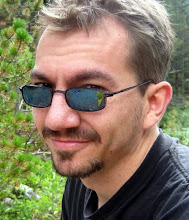 Dreher writes about the problems with having blind faith in science.
Dreher writes about the problems with having blind faith in science.
We should be responsibly skeptical of authority -- not only religious authority, but scientific authority. We live in an age of Scientism, in which many people invest science with the power of ideology. Wendell Berry calls this "modern superstition," because people have given science the powers they used to give to religion. Berry wrote a fantastic book defending the integrity and value of art and religion as ways of knowing, against the idea that Science should be the undisputed master of all. He doesn't oppose science, but he thinks that all three ways of knowing -- art, science, religion -- must be understood as limited. The trouble comes when any one is elevated as supreme above all others, and their spheres.
I agree 100% that we should be skeptical of authority of all types. I don't think there is ever anything wrong with asking questions, with not accepting anything blindly. We have brains for a reason (to reason...hahaha...nevermind). No one who espouses any sort of thought about something should be upset with someone else asking them, "Why do you think that?"
However, I'm not sure it's accurate to say we live in an age of Scientism. More accurately we do live in such an age, but it's only different from every other period in human history in terms of what we have blind faith in. Having a skeptical, questioning nature is hard. In fact, it seems to go against human nature. We are wired to accept certain things and we don't want to think that our belief (in religion, in science, in whatever) could be wrong. That's scary. So, we blindly accept a premise, however we've come to it, and then cling to it with a fearful fury. Certainty is much more comfortable than its opposite.
In my mind, school is where we should learn to get away from this. School should be less about facts and more about thinking, reasoning, questioning. I would much rather have a kid graduate knowing the bare minimum of facts about say, the American Revolution, but with a strong ability to critically examine the entirety of it, its pros and cons, its consequences, and what it meant. The ability to think critically is a much more useful skill than rote memorization of facts.
One last thought on skepticism. Being critical of everything does not mean not believing in anything. It means being able to explain why you believe something, not just what you believe.




No comments:
Post a Comment